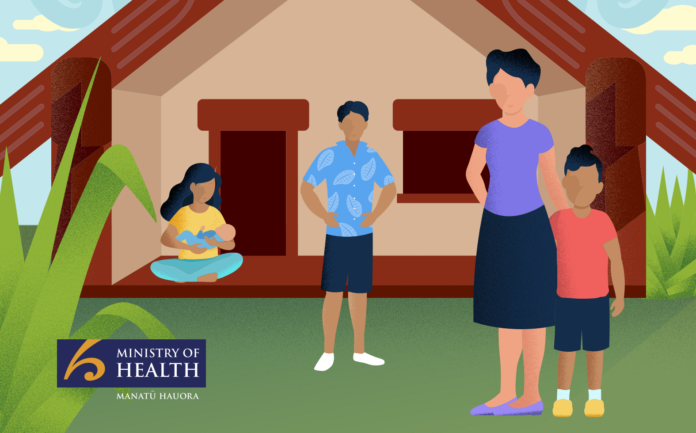The Government is promising significant change to a programme which supports the health, development and wellbeing of all tamariki from birth until five years old following a Ministry of Health review of the scheme.
“For more than 100 years there has been some form of health screening surveillance of children, and support available to whānau. But that programme has not kept up with the needs of modern families,” said Associate Minister of Health, Ayesha Verrall.
“Screening of babies, parenting support and advice is delivered through Well Child Tamariki Ora, by Whānau Āwhina Plunket and more than 60 other predominantly Māori and Pacific non-government organisations.
“These visits and checks as pēpi grow are to identify whether a child’s health or family would benefit from early intervention services, and provide support.
“But the data shows there has to be more consistency in referring tamariki on to specialist services, when a need is detected,” said Dr Verrall.
A comprehensive review of the Well Child Tamariki Ora programme has been carried out by the Ministry of Health, as a key action under the Child Youth and Wellbeing Strategy 2019.
“While Well Child Tamariki Ora has been developed with good intent, and is making a positive difference to the health and wellbeing of many children, it’s outdated,” she said.
“New Zealand’s population has changed significantly, and this programme has not kept pace with the needs of whānau; including the impact of poverty, drug use, mental health challenges, housing and family situations. It needs better integration with other health, maternity, social and early learning services.
“We need to bring the system up to a standard where we can drive high-quality performance – which means a combination of surveillance and providing children, mothers and whānau with the further support they need.
“And that work must respond to the science around the first 1,000 days of life, which shows strong evidence that investing in whānau during pregnancy and a baby’s early years can make the biggest difference to lifelong wellbeing.”
The Minister said Well Child Tamariki Ora services were well-positioned to support parents and whānau during this time.
“But access and engagement is inequitable, and the programme needs more flexibility to respond to the needs of individual families.”
“The Government recognises we need to do more, and a one-size-fits-all approach does not work. We have to design, deliver and resource this programme differently, to achieve equity,” she said.
Dr Verrall said one of the key elements of the Government’s planned reforms to the health and disability system, was designing services that work for different families’ needs.
She said Well Child Tamariki Ora’s changes will be informed by the enhanced support pilots; a whānau-led model of care similar to nurse-family partnerships, that supports parents and their whānau. Each whānau has a kaitiaki (key worker), who may be a nurse or kaiāwhina, backed by a multidisciplinary team. They can help with support for mental health, health care, accessing social services or education, or learning about parenting and child development. Two of the pilots are well underway.
“A shift to a more responsive, integrated, and evidence-based approach is needed to fully support tamariki who are Māori or Pacific, are living with disabilities, are in state care, and/or have high needs.”
“We must embed meaningful partnerships with Māori throughout the governance, design, delivery and monitoring of the programme,” Dr Verrall said.
The Minister announced the findings of the review during a visit to Porirua’s Ora Toa Community Health Unit, which has been providing Well Child Tamariki Ora services for 21 years, and contributed to the review.
The need for a range of short-term improvements and longer-term changes were identified across six priority areas: models of care; funding and commissioning; governance; quality, monitoring and evaluation; information and technology; and workforce.
The Ministry of Health is already progressing short-term actions to strengthen current Well Child Tamariki Ora services while improving equity.
This includes streamlining information systems and reporting to ensure children don’t slip through the cracks, and reviewing how funding is allocated so it can better support sustainability and equity. Work is also underway into current and future workforce needs, and to more actively monitor new-born enrolments with providers.
“The Government is committed to laying the foundations for a better future. If young people get the support they need in their role as parents, through programmes such as Well Child Tamariki Ora, the outcomes will be better for them, their tamariki, and the community.
“Providing appropriate support early is less costly, and more effective, than interventions later in life,” Dr Verrall said.
The Well Child Tamariki Ora Review Report is available from the Ministry of Health website: https://www.health.govt.nz/publication/well-child-tamariki-ora-review-report



